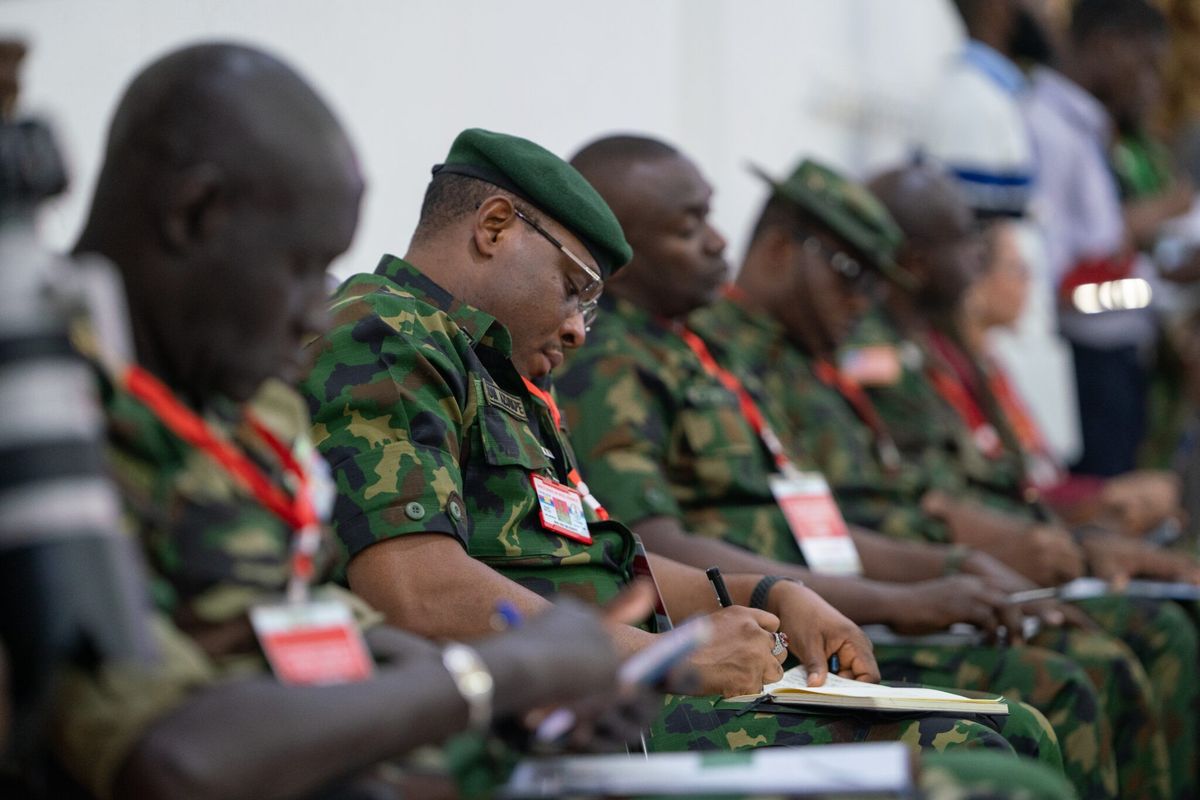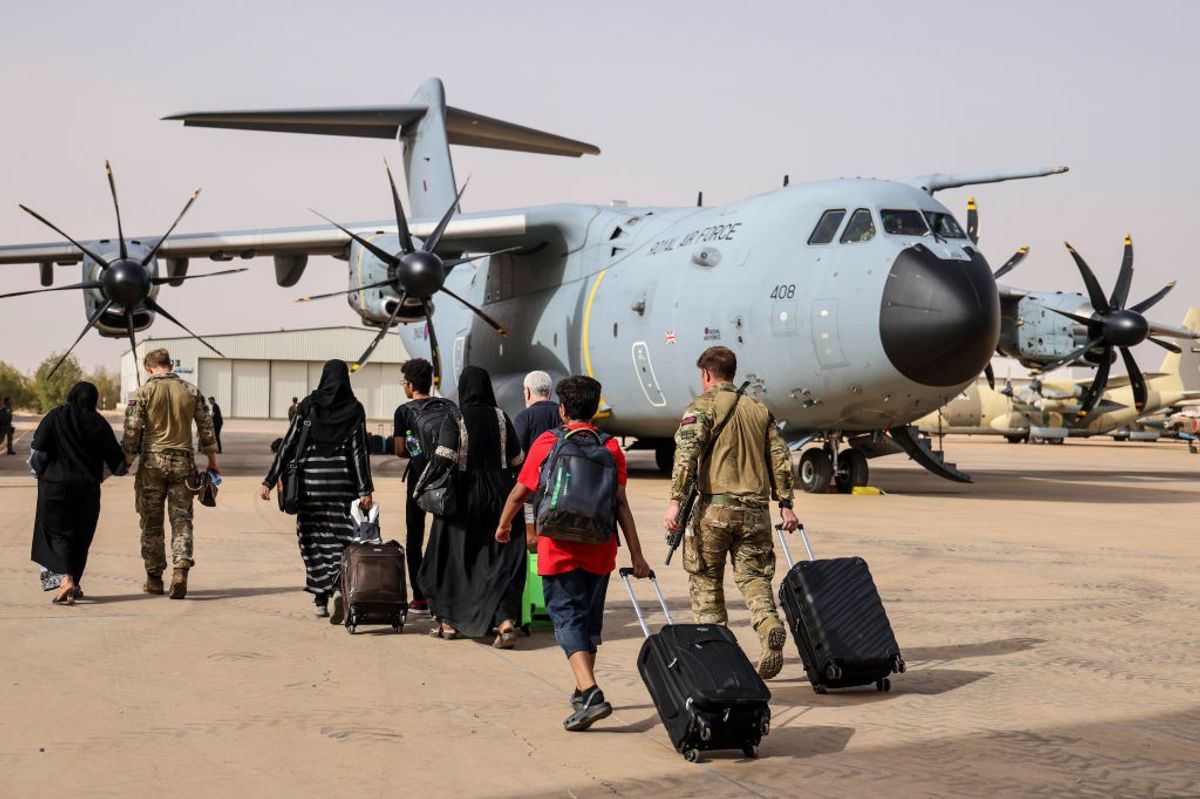Although piracy in the Gulf of Aden attracted global attention and efforts to combat the threat, a similar and growing problem in the Gulf of Guinea—off the coast of West Africa—is being largely ignored. Dr. Assis Malaquias, the Academic Chair for Defense Economics at the National Defense University’s Africa Center for Strategic Studies, explains how this instability is a threat to security and business, and explores how to go about combatting the problem.
The Cipher Brief: What security threats are present in the Gulf of Guinea? Is the problem getting better or worse? What U.S. interests are at stake?
Dr. Assis Malaquias: In addition to piracy and armed robbery at sea, the main security threats in the Gulf of Guinea include illegal, unreported, and unregulated (IUU) fishing, oil theft and illegal trafficking in narcotics, small arms and light weapons. The situation is definitely worsening. When we look at the threats mentioned above individually, the trends are quite worrying. In this situation, to make matters worse, Gulf of Guinea countries are facing these threats simultaneously. They face the impossible task of having to decide how best to respond and where to prioritize their resources because all of these threats are very serious.
Maritime insecurity in the Gulf of Guinea directly and negatively affects U.S. national interests or, for that matter, any trading nation. Most of the goods traded internationally use sea lanes. Instability or insecurity in the maritime domain affects the free flow of goods around the world. More broadly, criminality in those spaces affects global security. From a security standpoint, the U.S. and Gulf of Guinea countries share a body of water – the Atlantic Ocean. Because security is indivisible –and insecurity, unchecked, tends to spread– maritime security in the Gulf of Guinea is very much in the interest of the U.S.
TCB: Who are the perpetrators of piracy in the Gulf of Guinea? What has enabled them to emerge successfully in this region?
AM: Most perpetrators of maritime crime in the Gulf of Guinea originate from the region, but there is mounting evidence of collaboration among specialized transnational criminal networks. For example, piracy and armed robbery at sea often involves local and external elements. Another example, oil theft –including crude oil going to international markets, refined products coming to port, or oil extracted from pipelines onshore– involves many criminal elements, both national and international. This is the same for IUU fishing, narcotics trafficking, and all the other maritime threats.
Several factors have enabled the criminal element in the Gulf of Guinea to thrive. Obviously, these criminal activities generate large quantities of cash. Therefore, they can be very attractive to certain segments of society. But there is a much larger issue at play: there is a direct connection between fragilities onshore and vulnerabilities offshore. Some critical factors –political, economic, security, and judicial– must be carefully weighed when trying to understand maritime threats and challenges in the Gulf of Guinea. In all these spheres, African states in the region have massive deficits. One, in particular –the governance deficit– has significant negative implications for maritime security because, put simply, African states lack the capacity and capabilities to fully exercise sovereignty over their maritime spaces.
TCB: China played an active role in responding to the piracy off the coast of Somalia, but we don’t see a similar response here. Why is China taking a back seat in the Gulf of Guinea, and what could encourage Beijing to get more involved? Could this be an avenue for U.S.-Chinese cooperation?
AM: The international community, including China, responded in a robust fashion to the threats and challenges off the coast of Somalia because that was a classic case of piracy. Keep in mind, maritime criminal activities taking place outside territorial waters –that is to say, beyond 12 nautical miles– is an international concern that triggers international responses. Somali pirates were operating in a very large area, in the Gulf of Aden and the wider Indian Ocean, East toward India and South toward the Mozambique Channel. It became a real international concern. Rightly so, most naval powers around the world responded.
The situation is the Gulf of Guinea is different in the sense that most criminal activities at sea take place within the 12 nautical miles territorial waters, making it a domestic issue, requiring national responses. Countries affected can respond with the assistance of external partners but this is, fundamentally, a national issue. Having said that, over the years the U.S. has provided various types of assistance to African countries as they design strategies and operational plans to address their various maritime threats and challenges. Some European countries have also been quite active in this region. It is possible that China may also find this to be a useful avenue to cooperate with African countries.
TCB: What is the solution to combatting piracy in the Gulf of Guinea? Who should be taking the lead in finding a solution to the problem – countries in the region, regional blocs, private companies? What role can the U.S. play?
AM: The solution very much depends on what is done in the areas of development, governance, and security. As I suggested earlier, the solution to threats and challenges offshore must be found offshore. African countries have serious development deficits. These must be addressed so that, for example, unemployed youths in coast communities do not have to resort to criminality. Governance structures must be strengthened so that corruption and impunity can be addressed. The maritime security sectors must be provided with adequate capacities and capabilities to do their job of enforcing national sovereignty at sea and play a part in protecting the wider maritime global commons. So, there is a role for all the key actors. At the national level, governments must take the lead in ensuring that their territorial waters are protected. At the regional level –recognizing that the region faces common challenges– it is critical to implement mechanisms that promote the pooling of resources, information sharing, and interoperability. Private companies play an important role as well, especially when well-coordinated with local authorities and as part of well-designed strategies.
The U.S. continues to play an important role. Recognizing the importance of the Gulf of Guinea, the U.S. has been engaged at various levels –regional, zonal, and national– in providing support at the strategic and operational level toward maritime security in Africa. This engagement includes some very successful efforts, including the Africa Partnership Station, the Africa Maritime Law Enforcement Partnership, The Obangame Express maritime exercise series in addition to numerous strategic-level activities carried out jointly by the Africa Center for Strategic Studies, AFRICOM and NAVAF. US efforts will likely evolve in line with ongoing assessments of threats in the region. They will also reflect African countries’ own efforts to increase capacity and improve capabilities to address maritime threats.
TCB: What key challenges will we likely face in solving the piracy problem?
AM: Piracy and armed robbery at sea are not static phenomena. They evolve in sophistication. Criminals are better organized and often collaborate across the criminal spectrum—both local and transnational. The key challenge for governments will be to fully understand the nature of the problem and the modus operandi of the criminals as important first steps to designing coherent strategies and formulating effective action plans to combat this threat.













